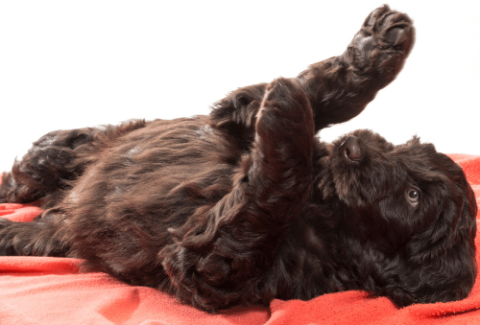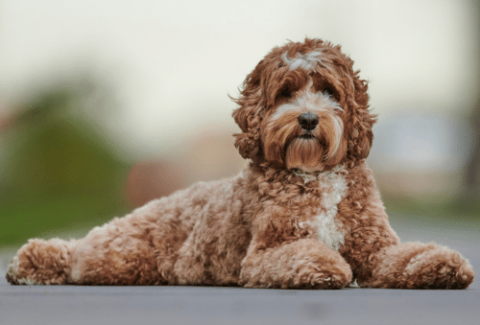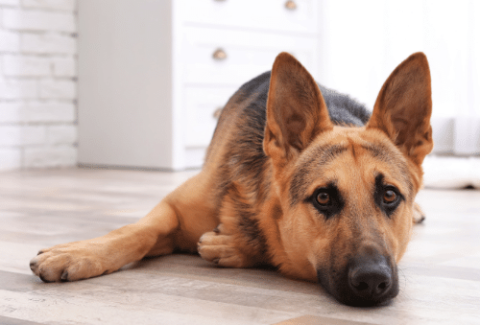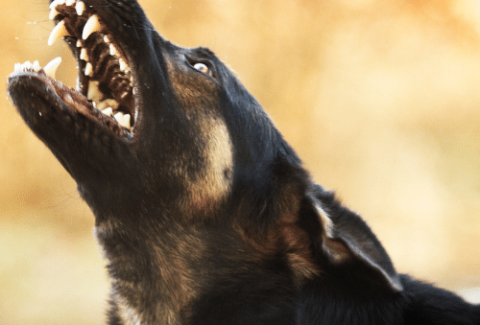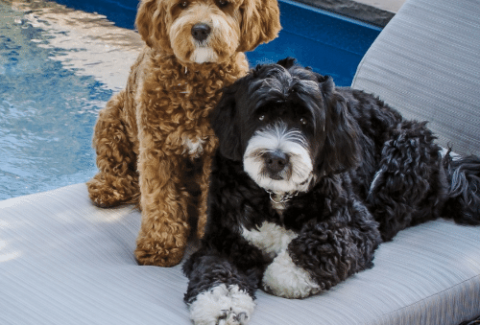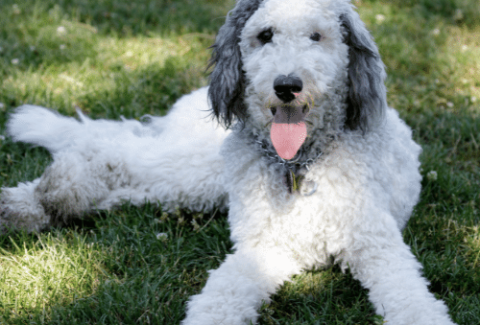Are Australian Shepherds Good Indoor Dogs?
August 15, 2021 2021-08-15 20:05Are Australian Shepherds Good Indoor Dogs?
Australian Shepherds are super lively, spirited dogs. If you are familiar with the breed, you probably know that they are famous for their abundant energy levels, and you may be wondering – are they good indoor dogs?
Yes! Like most dogs, Aussies (and Mini Aussies) are active and outdoorsy, but still best suited to indoor living. Medium-large-sized homes with gardens are best, but they can do well in smaller homes, too.
Just so long as they get everything they need to be happy and healthy!
Table of Contents
Do Australian Shepherds like living indoors?
Despite their working shepherd dog DNA, Aussie dogs love to cuddle up on the sofa and be part of home and family life. In fact, they are incredibly sociable, family-orientated dogs, and so they should live, eat, and sleep indoors with you.
Australian Shepherds love to be involved in all aspects of family life, so try to involve them wherever you can. They’re also happiest when they have a job to do, so let them accompany you whilst doing daily chores and supervising any children in the home.
If you provide your Aussie with daily physical and mental exercise, he can even live in an apartment with you!
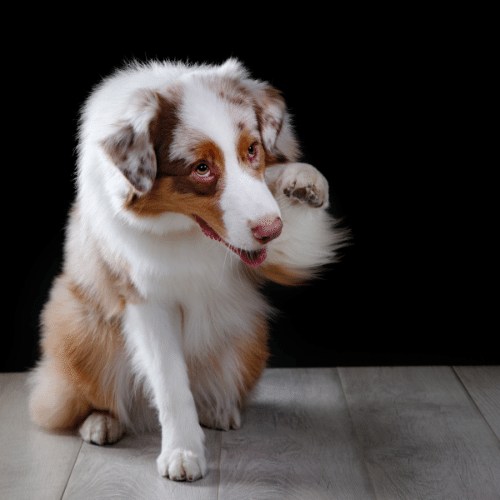
Can Australian Shepherds live outdoors?
Although Aussies are super outdoorsy, they are best suited to indoor living, like most companion pets. Many working Aussies even live indoors, these days. That said, as long as the conditions are safe, Australian Shepherds can sleep outside.
Dogs who sleep outdoors should have their own shelter, a comfy bed, and access to clean drinking water. They should not be able to get out into the street and should never sleep outside in temperatures above 68°F or below 45°F.
Even if your Aussie sleeps outside, no dog should live their entire life outdoors! Dogs are pack animals and are happiest when they are surrounded by their families. This applies to all sizes and types of Aussies – from Standard Australian Shepherds over Mini Aussies to the tiny Toy Australian Shepherds.
Are Aussie Shepherds hard to house train?
Australian Shepherds are a highly trainable breed, and it’s never too early to start house training. However, you do need to focus on building a bond with your pup too, as Aussies can be stubborn. So make sure you spend lots of quality time together to make them eager to please!
Aussie pups that are just weeks old tend to need to go to the toilet every hour or two, so to begin with, you should take them outside every hour, or 15 minutes after eating. This should decrease roughly by an hour per every month of their age until they are 4-6 months old, and then they should only need to go 3-5 times per day. To keep up a routine, feed and take them outside around the same times every day.
When pups do their business, remember to say the associative words that you want them to learn, and always shower them with praise and treats afterward.
Invest in some indoor pee pads for emergencies and when they do try to go potty indoors, do your best to get them outside, but don’t get angry if (and when) your pup has an accident. That said, it’s a good idea to start using negative signals during early puppyhood, like the word “no”, to mark “bad” behaviors.
However, it will not work on its own – and it will not work quickly! You must use it consistently with a non-physical, non-threatening negative association, such as ignoring your pup and crossing your arms, to let them know that you are upset. Over time, they will understand and respond to the word, but in the meantime, be patient and remember that they’re only babies!
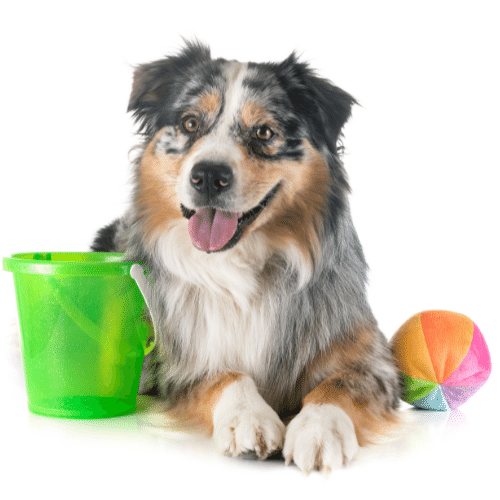
Do Australian Shepherds get bored indoors?
Australian Shepherds can get bored very easily – but this isn’t necessarily due to living indoors. However, boredom can lead to separation anxiety and destructive behaviors, which can negatively affect your home.
Aussies get bored when they are underworked. They may bark excessively, destroy furniture, and soil in the home out of frustration. They could even hurt themselves or in extreme cases, be aggressive towards other dogs. Intense, intelligent shepherd breeds like Aussies have a tendency to form and cling to compulsive behaviors when they feel stressed, so as an owner, you should do everything you can to prevent boredom with sufficient exercise and play.
How much exercise does an Aussie need?
Precisely how much exercise your Australian Shepherd needs depends on their age and health, but generally speaking, a healthy adult Aussie needs at least two hours of exercise every day – but preferably, closer to three!
Your Aussie’s daily exercise should be split into two or three walks. It’s great to vary walks by going to different places and incorporating different things into them, like running, hiking, swimming, and playing fetch with balls and frisbees.
You should also try to stop and interact with as many friendly strangers and dogs as possible. As we mentioned before, Aussies are social dogs, and they love meeting new people!
The general guideline for Aussie pups is that they need 5 minutes of exercise per month of their age. For example, a 5-month-old Aussie would need 25 minutes of exercise per day. This may not sound like a lot, but owners should take care not to overexercise young pups, as it can cause irreversible damage to their developing bones.
Older Aussies should have their exercise routines made less intense with slower, shorter, but more frequent walks to keep joints active. Vets will let you know when it is time to start slowing down at annual check-ups, and it’s important to follow this advice, as over-exercising can worsen deteriorating joints.
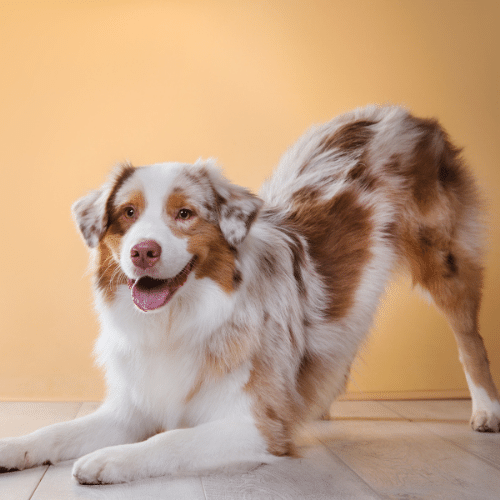
Exercising your Aussie’s mind
As mentioned above, Australian Shepherds can become bored when they are underworked. However, it’s not just about walks. Exercising the mind is just as important, if not more. Brainy breeds like Aussies need their minds need to be challenged and entertained regularly with fun games, tricks, and toys.
Aussies love to play games that exercise their herding instincts like fetch and chase, so make sure to incorporate them into your walks whenever you can. Many owners even like to set up obstacle courses in their homes and gardens using household items to put those natural agility skills to the test.
Hide and seek is also a great game to entertain your dog and work out that amazing sense of smell. To play it, just ask your dog to sit and stay while you hide somewhere in your home. Then, call them to come and find you. To make it more fun, switch it up and hide their favorite toy or some treats instead.
The cup game is another popular one among owners. To play it, just place two empty cups upside-down, side-by-side on the floor in front of your Aussie, then put a treat underneath one of them. Make sure your dog sees which one! Then, switch the cups around and ask your dog to find the treat. This game is super mentally challenging and tiring. To make it even harder, you could switch them around twice or even add another cup.
Teaching your Aussie new tricks is another great way to keep their minds working. Try teaching your Aus the name of their favorite toy by saying it repeatedly during a game of tug, then hide it and asking them to go and find it. Eventually, they should be able to go and pick it out of their toy box by name!
Toys are also a fab way to entertain and challenge your Aussie. Why not try out some mentally stimulating toys like puzzles, interactive feeders, and treat dispensers? Toys that stimulate the senses are also great, especially for pups. We highly recommend the pet brand Outward Hound for its range of mentally stimulating dog toys.
The bottom line
Australian Shepherds make fabulous four-legged family members. With proper training, lots of exercise, and plenty of fun and games, they will only add to your household!
Laura is a dog-lover with an animal-related degree and plenty of hands on experience. She is passionate about dog health & welfare and wants to arm owners with all of the essential info they need!
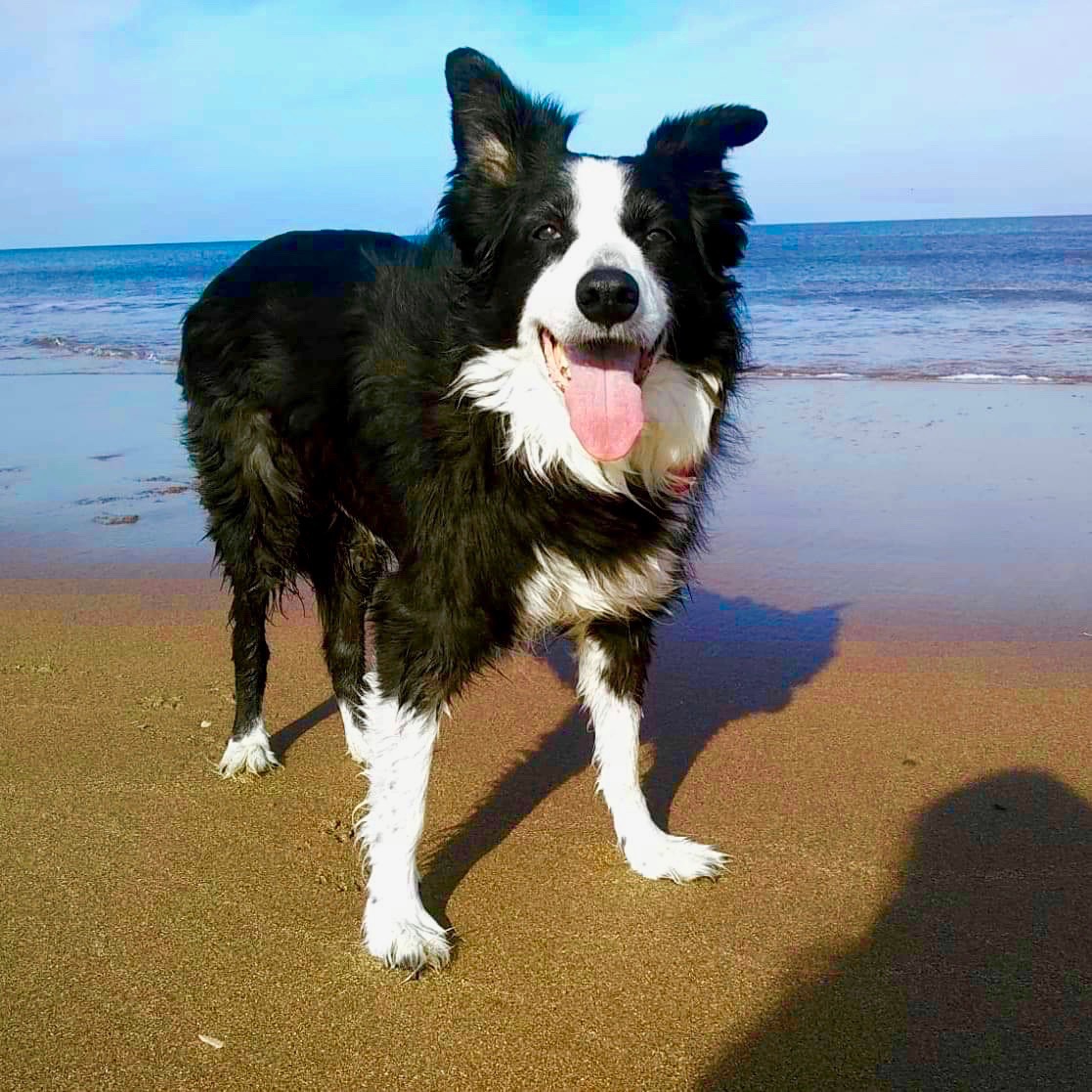
Steffi Trott
Related Posts
Are Labradoodles High-Maintenance?
At what age do Labradoodles calm down?
Are Pomeranians Good for First-Time Dog Owners?
Are German Shepherds Hypoallergenic?
Are German Shepherds Smart?
Are German Shepherds Vocal?
Are German Shepherds Good With Kids?
Do Bernedoodles like Water?
Do Bernedoodles Like Cats?
How Long Can Australian Shepherds Be Left Alone?
Check out our effective and affordable online dog training courses!
-
Sale Product on sale
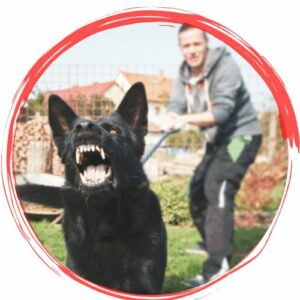 Tackling Reactivity Bundle
Tackling Reactivity Bundle
MONEY BACK GUARANTEE$564.00$49.00 -
Sale Product on sale
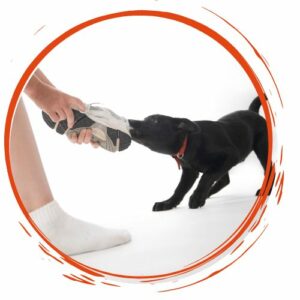 Perfect Obedience Bundle
Perfect Obedience Bundle
MONEY BACK GUARANTEE$349.00$49.00 -
Sale Product on sale
 Ultimate Puppy Bundle
Ultimate Puppy Bundle
MONEY BACK GUARANTEE$416.00$49.00 -
Sale Product on sale
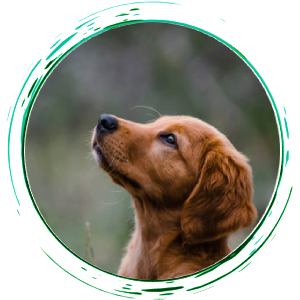 The Perfect Focus Bundle
The Perfect Focus Bundle
MONEY BACK GUARANTEE$445.00$169.00 -
Sale Product on sale
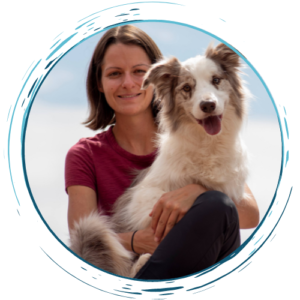 Ultimate Masterclass Bundle
Ultimate Masterclass Bundle
MONEY BACK GUARANTEE$2,213.00$499.00

